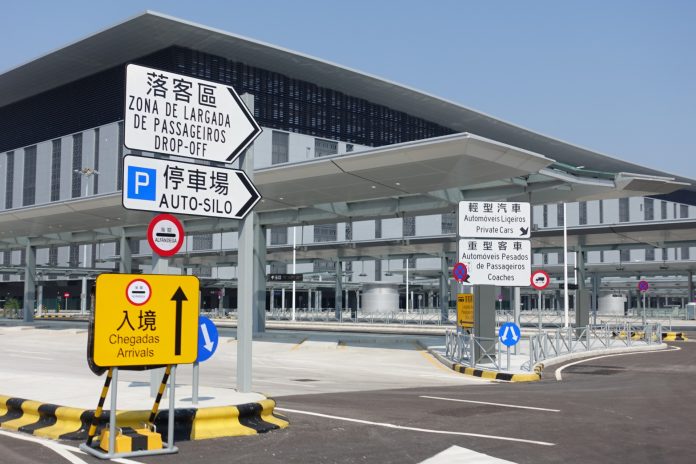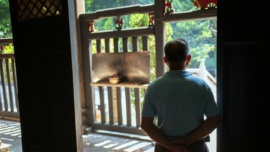The lab where China analyses what will happen in the Greater Bay Area is HZMB. Relationship difficulties with Hong Kong can be a good metaphor.
MB November Special Report | The ghost bridge
Over the past year, there have been a number of difficulties in dealing with Hong Kong in the way bridge business is handled.
It is true that, despite the efforts of the Macau Government, one year was not enough to solve many of these problems.
Some were out of apparent unwillingness and others because the solution takes longer.
It is the case of the lack of parking for cars going from Macau to Hong Kong.
Despite Macau’s government efforts, it is still impossible for Macau cars to reverse at the Hong Kong border post as there is no car park yet.
This is an infrastructure much needed but its building it will take time, so the MSAR Government has been negotiating with the authorities of the other region “in order to have a passenger pick-up and drop-off point as soon as possible.”
As is well known, on the Macau side two car parks were built, each with about 3,000 seats. These parks allow Hong Kong cars to park in Macau, get off, and then head into Macau. “Macau MPs asked the Government to negotiate for the Hong Kong Government to set up a similar park at the Hong Kong border post,” said Member Si Ka Lon.

This has been one of the hottest topics whenever the Secretary of Transport goes to the Assembly. In March this year, when Rep. Mak Soi Kun addressed Raimundo do Rosário on the issue, the Secretary informed that the questions had been put to the Hong Kong authorities, but that, on the other hand, “we had no answer.” Mr Rosario even stated that “the deputies, perhaps, understand that we are all silly or lazy.”
Another open point concerns the possibility of increasing the quotas of vehicles running on the bridge. At present, 600 cars from the territory can travel to Hong Kong, while in the opposite direction only 300 cars are allowed. “We are still talking, I did not want to say [numbers], but deep down is to realize that we are talking. These things take their time,” said Mr. Rosário in May.
Another question: Macau would like Hong Kong to have the same communication policy to make life easier for interested users.
But while in Macau the need to affix local registration plates to cars of the neighboring region has been waived, replaced by a virtual registration, in Hong Kong it is still necessary to place a physical local registration plate, which in some cases means having three different registrations in the same vehicle.
Good news to close the list of dissonances: as we have reported in this special report, after much insistence, the governments of Hong Kong and Macau have agreed to add cross-border shuttle bus services between the HZMB Macau Port and the Hong Kong International Airport.
According to the last DSAT information to Macau Business (last month) it was learned that the Airport Authority Hong Kong has started the relevant tendering.
To stop buses with typhoon
The new bridge was opened during the passage of Tropical Storm Wipha last August.
The Government of Macau wants to prevent situations like this from happening again, having started talks with the bridge bus concessionaire to stop buses from running on the HZMB when the eight or higher typhoon signal is hoisted.
What cannot happen is that passengers come to Macau from the bridge and then have no way to circulate, because in the MSAR road transport is interrupted an hour and a half after that signal is raised.
However, Raimundo do Rosário stated that the government alone cannot intervene in the question of the closure of HZMB, because that decision depends on the company that manages that infrastructure and which has representatives from three different jurisdictions.
The HZMB Joint Committee of Three Regions is responsible for coordinating the management and use of the bridge, while the HZMB Board of Directors is responsible for managing the bridge properly.
























